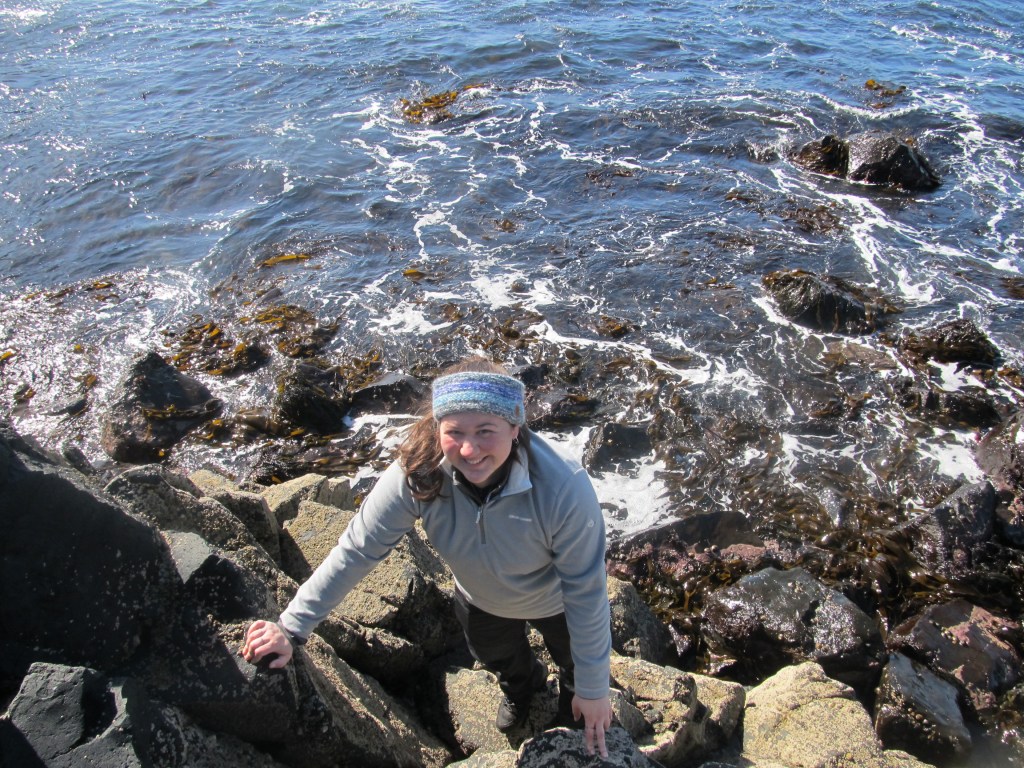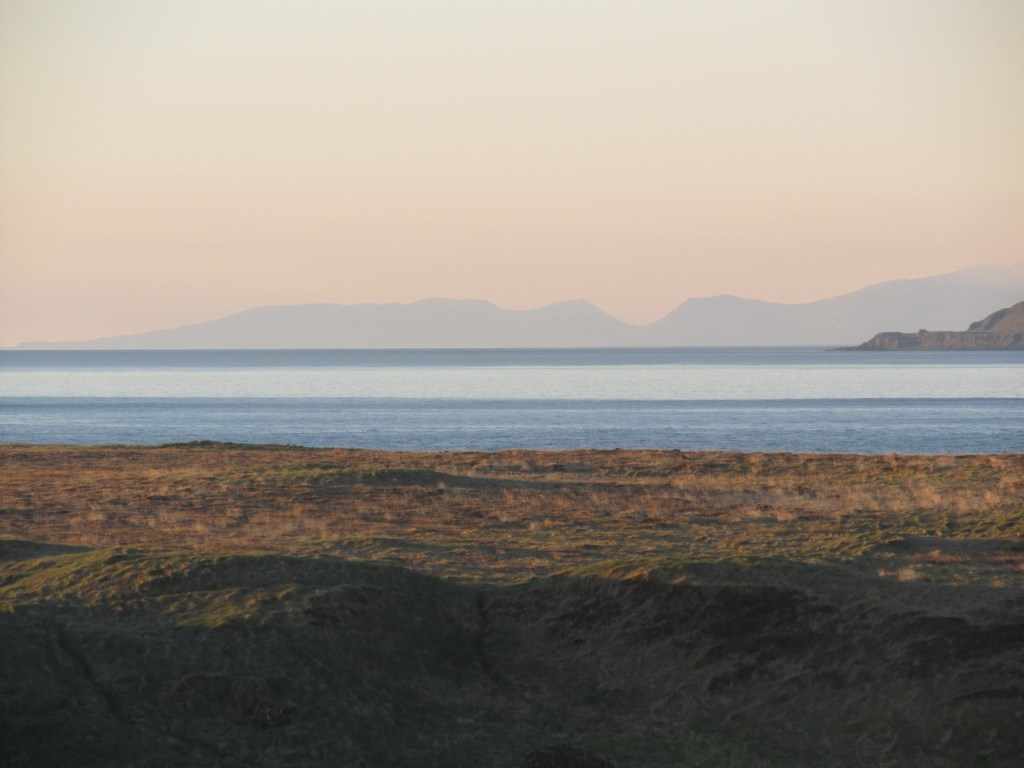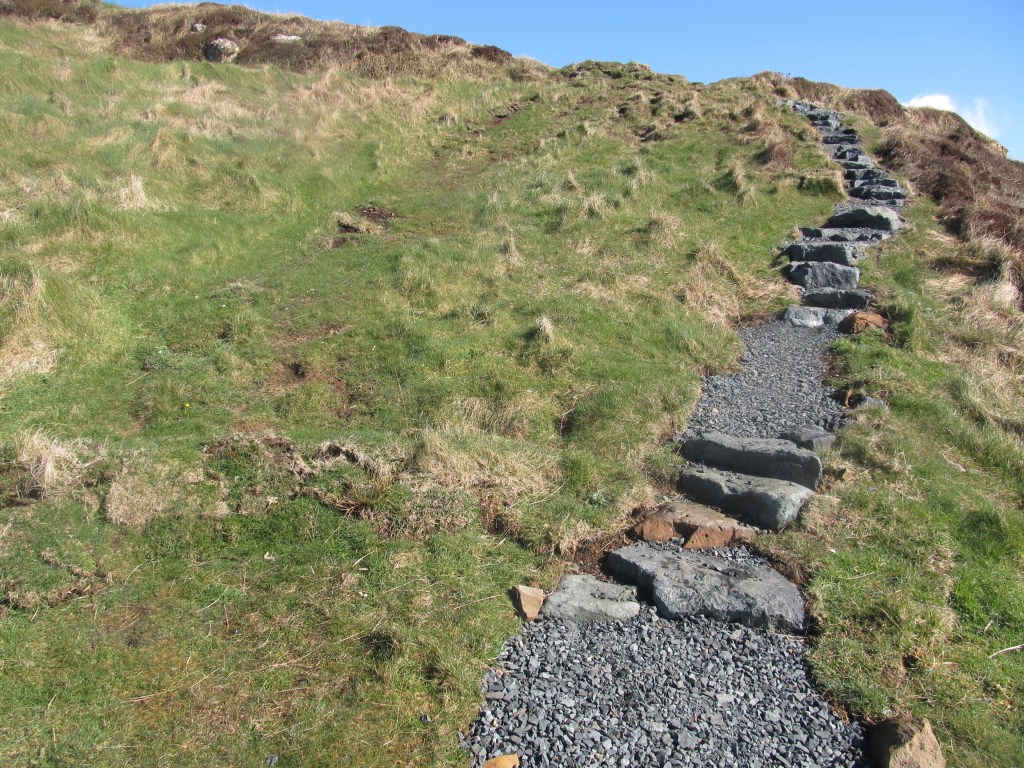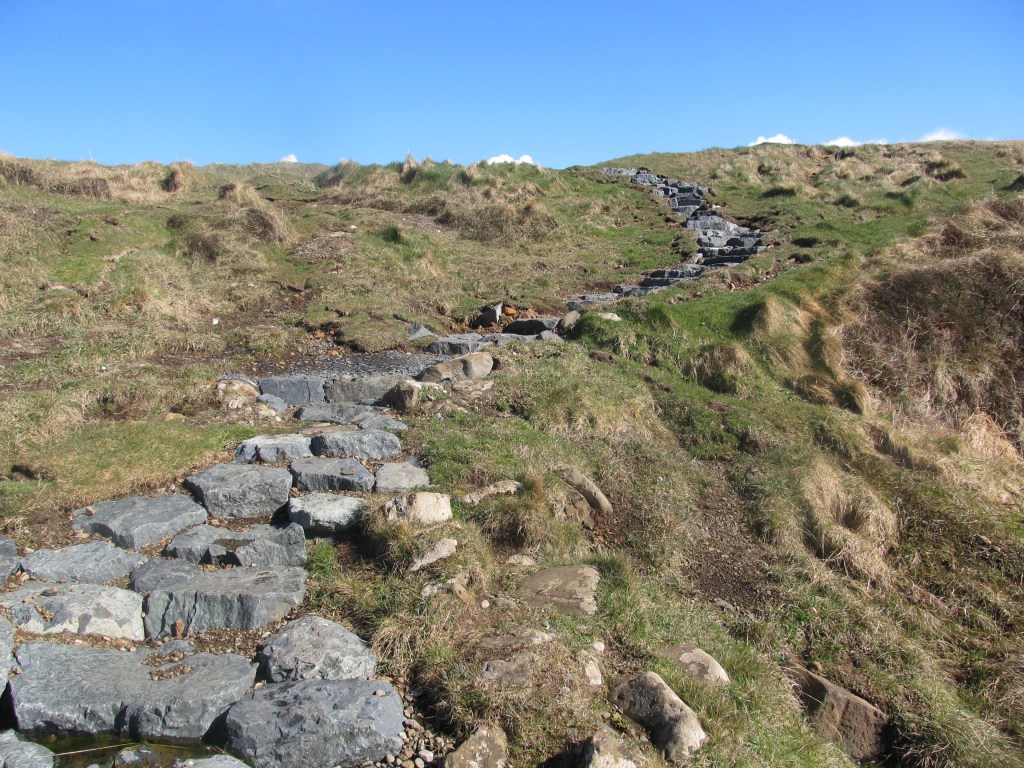Staffa is one of the islands we look after here at the ranger service, it’s part of our partnership with the National Trust for Scotland.
Plenty of activity on this little island recently! Louise King, the new NTS seasonal ranger has arrived and is enjoying getting to know the place and enhancing our visitor experience with plenty of information, often to be found at the puffin colony where birds are returning and have just started coming on land to sort out their burrows for egg laying. Louise brings a lot of knowledge about rockpool creatures and marine mammals, here she is investigating the intertidal zone.

Sadly the birds that are not returning are our fulmars. Cliff faces that were dotted with nest sites a few years ago are now eerily quiet. Fulmar populations are declining nationally, with marine plastic and climate change affecting food supplies, but ours gave up their breeding attempt mid-season last year and have not returned. We don’t know if they were spooked by something or whether it’s just part of the general decline for this species, but it’s sad to lose a breeding species from the island. Hopefully they will try and re-establish a colony in the future.


More positively, Louise and Emily spent a night on Staffa with volunteer bird-enthusiast Igua, to enable a dawn black guillemot count which revealed numbers of this auk species are healthy. Birds nest in hidden cracks in the cliffs, but fly down before sunrise ready to head out to sea to fish, displaying their big red clown feet as they perch on the edge of the rocks ready to dive in!





In other wildife news, we are keeping a close eye on the colony of shags breeding in Clamshell Cave this year. As they are so close to the landing jetty we need to ensure they have fledged all of their chicks before we start improvement works there in late summer/autumn. This means Staffa will be closed to all landings for a couple of months from mid-late August onwards.


On the maintenance side of things, we hosted NTS Footpath Manager Bob Brown last week to help us plan future repair work. We love welcoming visitors to explore this National Nature Reserve, but tens of thousands of human feet every year do take their toll on the ground surface, so we are gradually making paths more durable and less muddy. We also completed a spring beach clean and good to see there wasn’t too much rubbish needing taken away.



As avian influenza (bird flu) continues to be a threat to seabird colonies, we will be installing a disinfectant mat and roping off some areas to reduce disturbance to our seabirds, please watch out for signage on the island and play your part in protecting our wildlife.
More frequent updates can be found on the Staffa Twitter account.